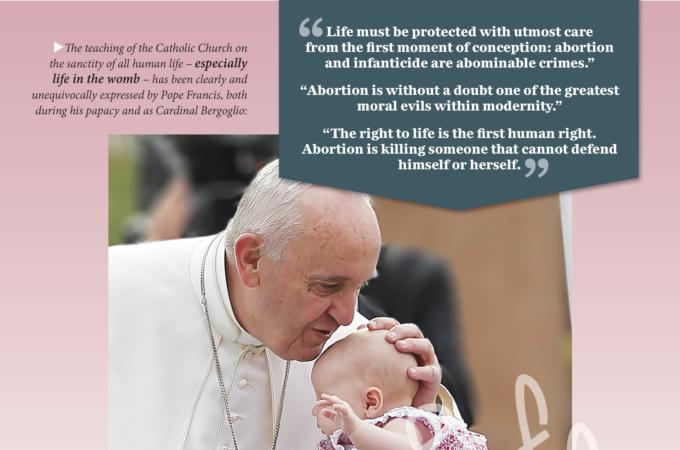Those Catholic WikiLeaks
At the risk of causing cardiac distress or cerebral incidents among the bloggers of the Catholic Left, let me begin by saying that I agree with the claim that the recent WikiLeaks dump of "Catholic e-mails" from the higher altitudes of the Clinton Machine is No Big Deal. But if so, why not?
It's no big deal in the sense that anyone who's been paying attention has long known that a lot of money, usually from secular sources allied to fanatic population controllers, has been used to create "Catholic organizations" that are little more than letterheads. And with those letterheads, expensive newspaper ads, press releases, and other forms of propaganda are confected, especially during election season. "Catholics for Choice," "Catholics United," and "Catholics in Alliance for the Common Good" are all examples of this scam: faux-organizations long on income and high in media visibility, but with virtually no base in the U.S. Catholic community.
This is an old tactic with an unsavory pedigree. "Catholic" front organizations were a staple of communist agitprop during the Cold War, as communist parties in central and eastern Europe tried to replace the real Catholic Church with a Catholicism more to the comrades' liking. The most notorious of these gangs was the "Pax" movement in Poland, which, as one historian put it, was "almost more Stalinist than the Party;" its founder, Boles?aw Piasecki, was a pre-war fascist who bought his way out of a Soviet prison by offering to be a kind of Trojan horse among Polish Catholics. Then there was "Pacem in Terris" in Czechoslovakia; the real Catholics called the toadies who were its fawning, regime-compliant members the "pax terriers."
The mini-novum in the WikiLeaks material is the revelation that these richly-funded front organizations, and their co-conspirators in the Democratic Party, were after bigger game than electoral victory. They also saw themselves as also effecting a change in the Catholic Church's allegedly retrograde "positions" on sexual morality, gender, and marriage -- as if these "positions" were something that could be changed as readily as Mrs. Hillary Clinton's position on free trade.
But here, too, there's really nothing surprising. Self-styled Catholic progressives have never understood the nature of settled Catholic teaching since the meltdown of the progressive Catholic brain over Humanae Vitae, Pope Paul VI's 1968 encyclical on the morally appropriate means of family planning. That Senator Tim Kaine imagines that the Church's teaching on the nature of marriage is susceptible to change tells you something, I suppose, about the catechetical formation he received in the Jesuit Volunteer Corps. That John Podesta and other Clintonistas imagined that they could spin Pope Francis with money from George Soros perhaps tells you a bit about the fantasyland these people inhabit. (If I were Mr. Soros, I'd want my money back. Spending $650,000 on a lobbying campaign to convince Pope Francis that income inequality is a problem is not strategically smart philanthropy, given the Pope's well-known concerns about poverty.) But there's nothing really new here: only another trigger-warning about the soft totalitarianism implicit in the contemporary "progressive" project.
If there's a lesson to be learned from this WikiLeaks business for the difficult future that awaits the Church in the United States, it has to do with the bishops becoming more assertive guardians of the "Catholic" brand. When "Catholics for Choice" takes out full-page newspaper ads asserting that "Public funding for abortion is a Catholic social justice value" (as happened during this election cycle), the local bishop should be at the forefront of the public challenge to such lies, making clear through the local press and social media that "Catholics for Choice" is not recognized as a legitimate Catholic organization by the U.S. Conference of Catholic Bishops -- and perhaps calling the newspaper's editor or proprietor to inquire why the paper is accepting blatantly false advertising.
The local bishop is the trustee of the Church's identity in the diocese entrusted to his care -- just as he's the guardian of the Catholic truths to be taught in his schools and the guarantor of the integrity of the sacraments administered under his authority. Given what's coming in the near future, bishops had better prepare themselves now for being active defenders of the Church's integrity in all these spheres of Catholic life.
- George Weigel is Distinguished Senior Fellow of the Ethics and Public Policy Center in Washington, D.C.



















